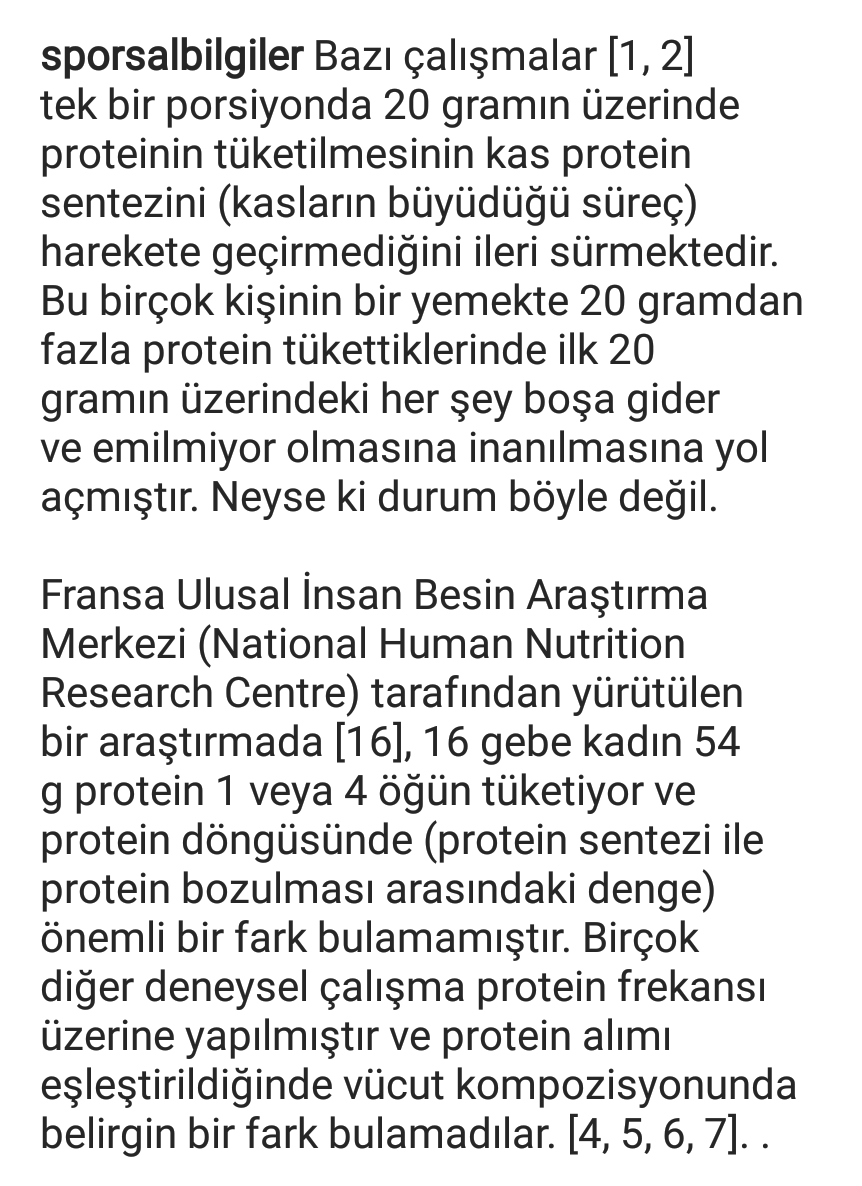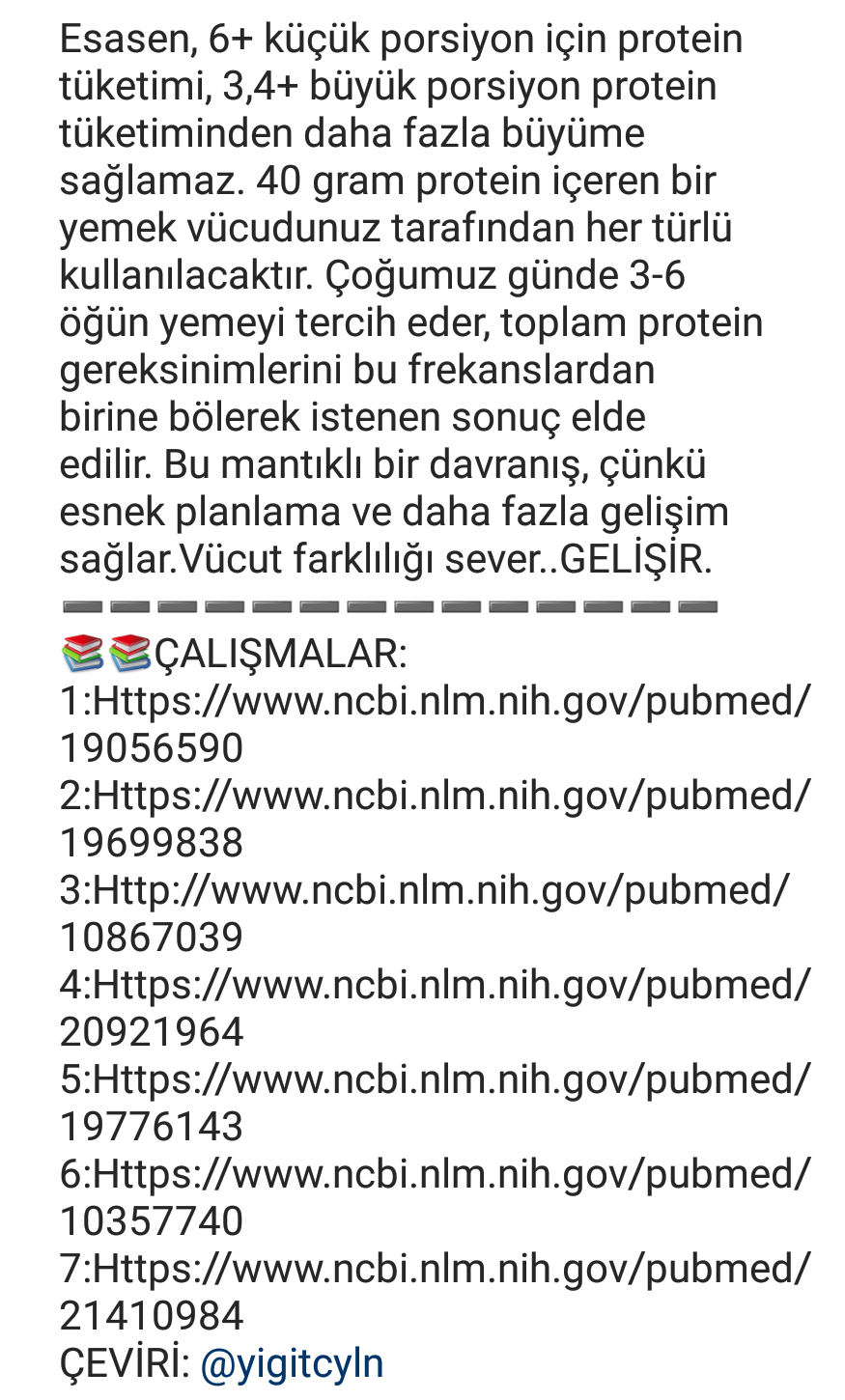Müsait olduğunuz bir zamanda kaynak bekliyor olacağım. Teşekkürler
Protein timing as a trigger for metabolic adaptation.
Laboratory- based studies show that MPS is optimized in response to exercise by the consumption of high biological value protein, providing ~10 g essential amino acids in the early recovery phase (0 to 2 hours after exercise). This translates to a recommended protein intake of 0.25 to 0.3 g/kg BW or 15 to 25 g protein across the typical range of athlete body sizes, although the guidelines may need to be fine-tuned for athletes at extreme ends of the weight spectrum. Higher doses (ie, >40 g dietary protein) have not yet been shown to further augment MPS and may only be prudent for the largest athletes, or during weight loss. The exercise-enhancement of MPS, determined by the timing and pattern of protein intake, responds to further intake of protein within the 24-hour period after exercise, and may ultimately translate into chronic muscle protein accretion and func- tional change. Whereas protein timing affects MPS rates, the magnitude of mass and strength changes
over time are less clear. However, longitudinal training studies currently suggest that increases in strength and muscle mass are greatest with immediate postexercise provision of protein.
Whereas traditional protein intake guidelines focused on total protein intake over the day (grams per kilo- gram), newer recommendations now highlight that the muscle adaptation to training can be maximized by ingesting these targets as 0.3 g/kg BW after key exercise sessions and every 3 to 5 hours over multiple meals. Question #8 (Figure 1) summarizes the weight of the current literature of consuming protein on protein- specific metabolic responses during recovery.
Kaynak: Louise M. Burke et al., Position of the Academy of Nutrition and Dietetics, Dietitians of Canada, and the American College of Sports Medicine: Nutrition and Athletic Performance, 2016
Başka bir konuya yazmıştım bunları. Ayrıca 2016 da yapılan bir çalışma var:
Loenneke JP, et al., Per meal dose and frequency of protein consumption is associated with lean mass and muscle performance, Clin Nutr. 2016.
"CONCLUSIONS: We found that more frequent consumption of meals containing between 30 and 45 g protein/meal produced the greatest association with leg lean mass and strength. Thus, the consumption of 1-2 daily meals with protein content from 30 to 45 g may be an important strategy for increasing and/or maintaining lean body mass and muscle strength with aging."[DOUBLEPOST=1491603036][/DOUBLEPOST]Bunların dışında kuvvet antrenmanına moleküler cevap ve beslenme adlı derleme, ya da egzersiz sonrası maksimum kas protein sentezinin doza bağlı protein tüketimiyle ilgili çalışma örnek gösterilebilir. Bunlar aklıma gelenler. Ki yukarıdaki kaynak en güzel cevabı veriyor.
"Whereas traditional protein intake guidelines focused on total protein intake over the day (grams per kilo- gram), newer recommendations now highlight that the muscle adaptation to training can be maximized by ingesting thesetargets as 0.3 g/kg BW after key exercise sessions and every 3 to 5 hours over multiplemeals. "
Antrenmana kas adaptasyonunun maksimum şekilde 0.3 g/kg protein içeren ve 3-5 saat aralıklarla tüketilen çoklu öğünler ile sağlanacağı ifade ediliyor.
Umarım işine yarar



